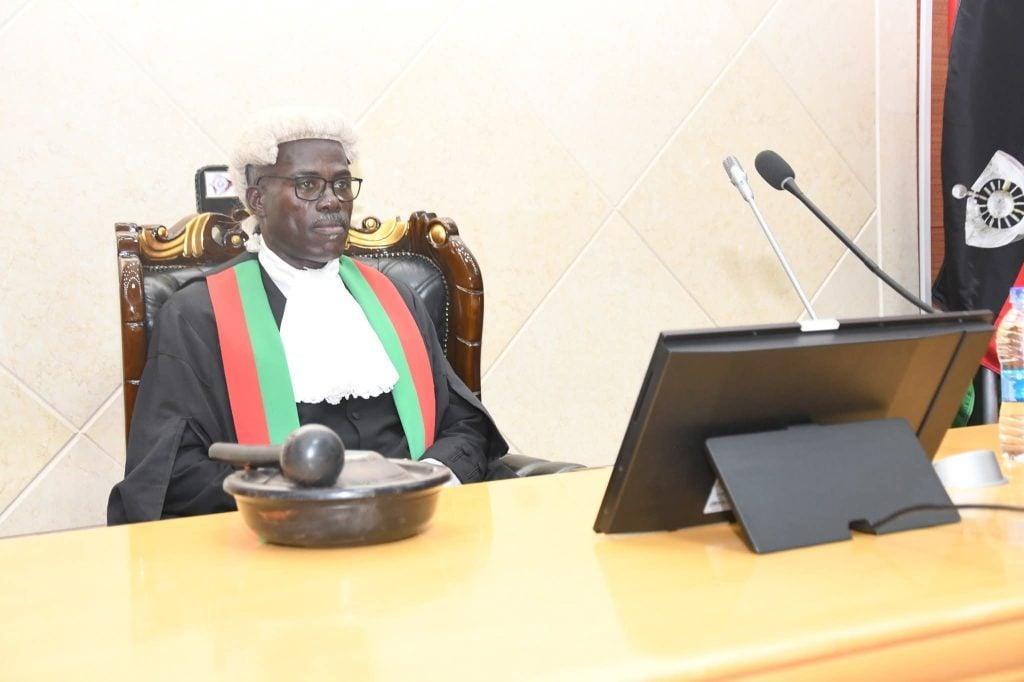Africa-Press – Malawi. Lilongwe’s Parliament Building was a scene of splendour and symbolism yesterday, as 111 newly elected Members of Parliament took their oaths of office — marking the official birth of Malawi’s 2025–2030 Parliament.
The atmosphere was nothing short of electric. The red-carpeted chamber dazzled with colour, confidence, and conviction — as lawmakers arrived dressed to impress. From sharp suits and tailored dresses to dazzling fascinators and bright hijabs, the day felt less like a bureaucratic formality and more like a celebration of democracy and diversity.
Giant screens in the lobby and amphitheatre broadcast every moment live, allowing families, friends, and supporters to witness history unfold. It was Malawi’s democracy on full display — proud, vibrant, and renewed.
In a ritual steeped in tradition, Clerk of Parliament Fiona Kalemba called the MPs one by one, in alphabetical order, to take their oaths before Deputy Chief Justice Lovemore Chikopa. Each stepped forward, bowed, swore to “preserve, protect and defend the Constitution,” shook hands, and gracefully backed into their seats — a quiet pledge of service before a watching nation.
Kalemba called it “a defining moment in the MPs’ public service journey,” reminding them that their oaths were not mere words, but binding promises of integrity and loyalty.
Justice Chikopa echoed that sentiment:
“This moment reflects the trust Malawians have placed in their leaders to move the nation forward.”
Among the notable faces taking their oaths were Foreign Affairs Minister George Chaponda (DPP), UTM’s Patricia Kaliati, MCP Secretary General Richard Chimwendo Banda, Freedom Party’s Khumbo Kachali, musician-turned-politician Skeffa Chimoto, and former presidential aide Norman Chisale.
Chaponda, beginning his fifth consecutive term, called the ceremony “both spiritual and political.”
“To serve this long is God’s grace. My return marks a new chapter of implementation under President Mutharika’s administration,” he said, pledging to push forward the government’s “Four Fs” agenda — Food, Fertiliser, Fuel, and Foreign Currency.
Kaliati, vibrant and outspoken as ever, described her comeback as “a blessing and a duty.”
“If our people could wake up at 2 a.m. to vote for us, then we must serve them with every ounce of energy,” she said, promising to champion roads, clean water, and electricity for Mulanje West.
From the opposition benches, Kasungu South MP Simplex Chithyola Banda struck a tone of sober reflection, saying the day was a reminder of “the sacred trust citizens have placed in their representatives.” He promised a strong, evidence-based opposition that would hold government to account.
Governance experts hailed the ceremony as a moment of renewal and responsibility. Boniface Chibwana of the Centre for Multiparty Democracy said the high turnover of MPs — only 36 percent retained — was “a loud message from voters demanding better.”
“MPs must legislate with the people, not parties, in mind,” he said. “They must prioritise food security, equity, and accountability.”
Benedicto Kondowe of the National Advocacy Platform urged the new cohort to “reclaim Parliament as a house of the people, not a tool of patronage.”
Political analyst George Chaima went further: “For too long, Parliament has been the graveyard of people’s hopes. This is the moment for MPs to restore trust, fight poverty, and legislate for transformation.”
The numbers tell their own story. Out of 224 declared constituencies, DPP leads with 78 seats, followed by independents with 70, MCP with 53, UTM with eight, and smaller parties sharing the rest.
As the swearing-in ended, applause echoed through the chamber — not just for the 111 who took the oath, but for what their presence represents: a new dawn, a new mandate, and a renewed hope that this Parliament will rise above politics to serve the people who sent them there.
For Malawi, the clock of renewal has struck.
For More News And Analysis About Malawi Follow Africa-Press






